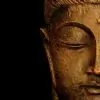Originally posted by: Darklord_Rehan
That is the difference between the common interpretation of Dharma and the Absolute interpretation which Shri Krishna gave. What you are speaking about is Maryada, not Dharma. Dharma is one and same for all. Maryadas can be different according to status or relationship or society, but Dharma or Righteousness is impeccable.
For example a certain religion says that a rape can be only called rape if the victim can present 4 eye witnesses of the crime. If the victim fails to do so, she shall be shunned as a prostitute and lashed in public. Do you think Followers of such norms can be called Dharmic or righteous just because they obey the scriptures blindly?
These norms are present in every religion. Sita's banishment is an example. When a much married man spends time with another woman nobody raises an eyebrow, but when a woman is kidnapped by an evil Rakshasha she has to walk on the fire to prove her chastity. Is that Dharma?
Blindly following norms and customs can never be called Dharma, in my opinion. It doesn't matter whoever does so - be it Dharma Raj Yudhishtir or God Incarnate Shri Ram. Ram's Dharma as a king and as a leader should have been to defend Sita - not because she was his wife - because she was being served injustice. Instead of doing that, Ram only encouraged that injustice by banishing her. There was a recent post regarding who would be my ideal King. I deliberately did not vote him for this reason. A nation's true condition is known from the status of women in its society. A society where innocent women are banished and are ordered to walk on fire can never be an ideal society even if God is ruling it.
That is why I prefer Krishna as my guide. I know Ram and Krishna are one and same. But Krishna never cared about such outdated and irrelevant norms and traditions. His only concern was righteousness and to establish that he could have gone to any length.






















